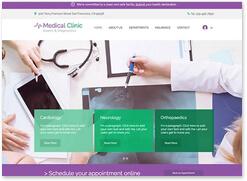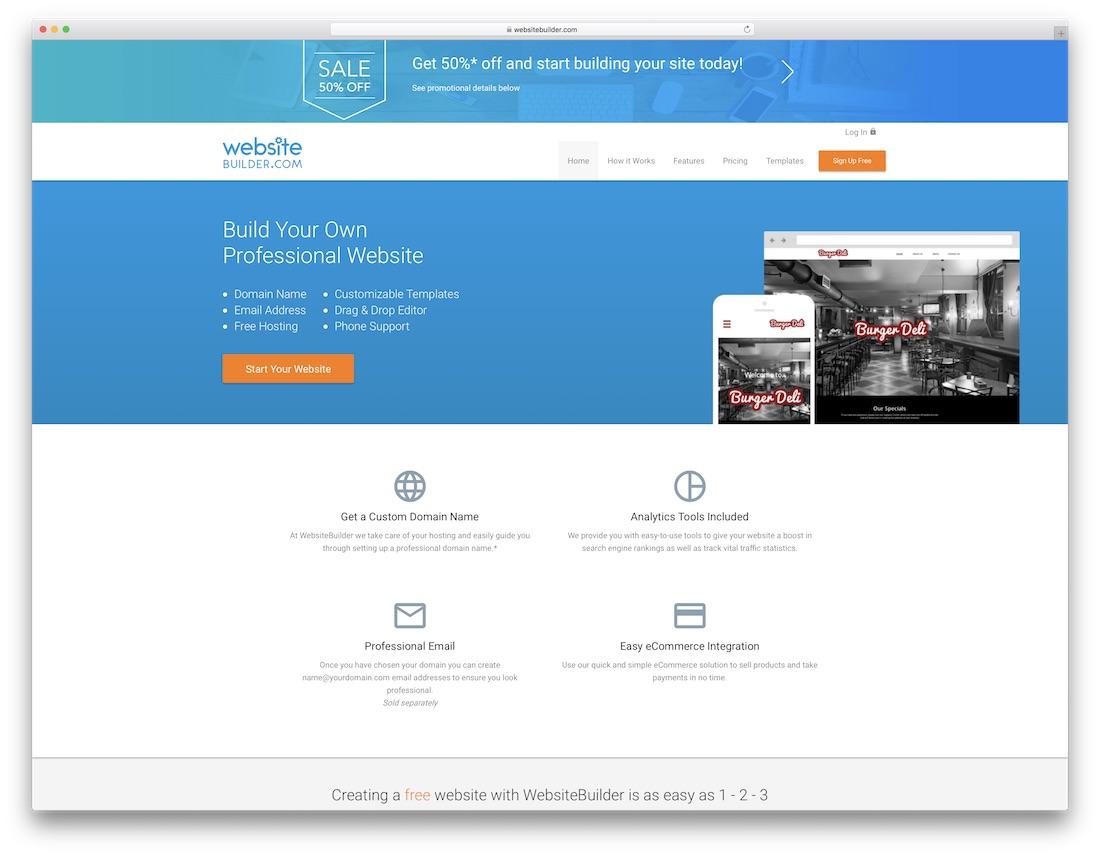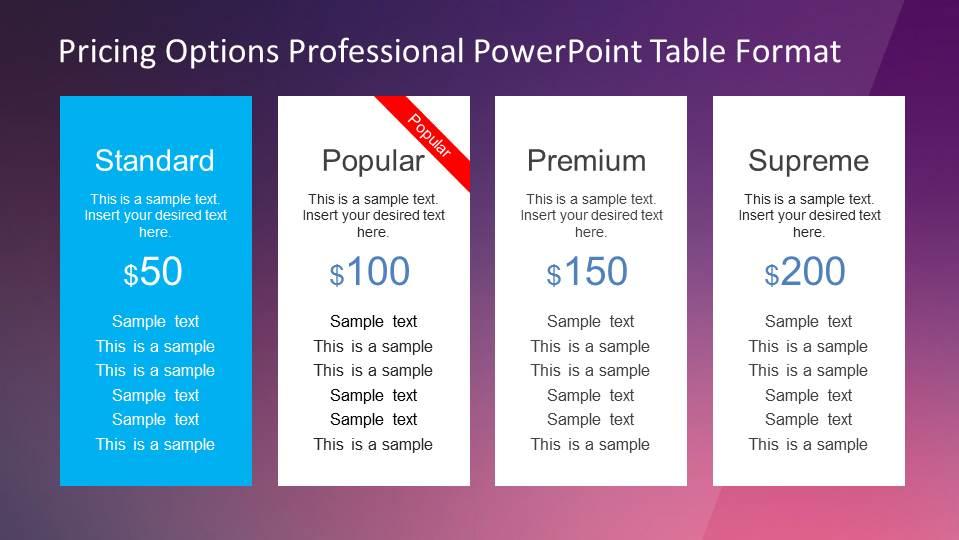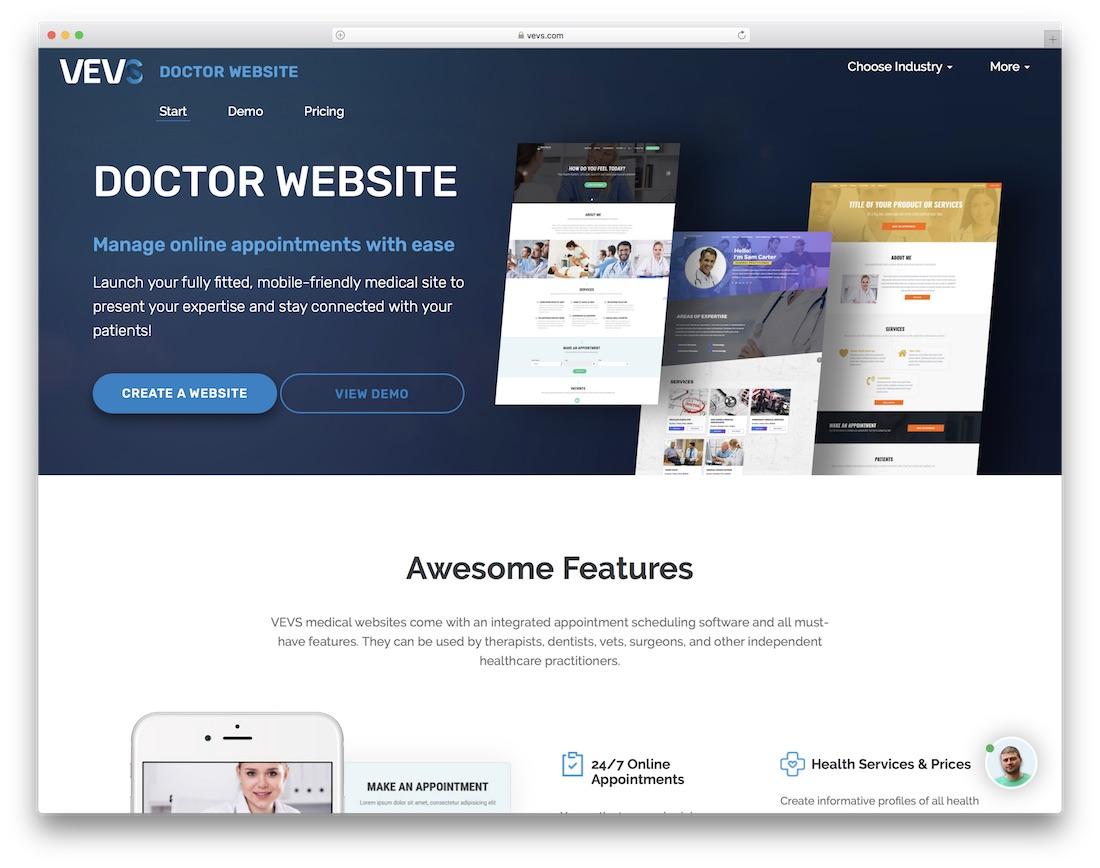Looking to enhance your medical practice’s online presence? Check out our roundup of the 7 best medical website builders of 2025! We’ve compared features, pricing, and user-friendliness to help you find the perfect fit for your needs. Let’s dive in!
7 Best Medical Website Builders 2025 (Compared)
Creating a standout online presence is crucial for medical professionals in today’s digital world. Whether you’re a doctor, dentist, or therapist, having a well-designed website isn’t just a luxury—it’s a necessity. But with so many website builders out there, how do you choose the one that fits your specific needs? That’s where we come in! In this article, we’ll dive into the 7 best medical website builders of 2025, comparing their features, ease of use, pricing, and other essential factors. We’ll help you find the perfect platform to showcase your practice, connect with patients, and enhance your online reputation. Ready to take your practice to the next level? Let’s explore the top contenders that can help you build a professional, user-friendly website in no time!
The Importance of Choosing the Right Medical Website Builder
In the ever-evolving realm of healthcare, establishing an online presence is no longer a luxury; it’s a necessity. The right medical website builder plays a crucial role in shaping how your practice is perceived by potential patients. A user-friendly and aesthetically pleasing website not only enhances your credibility but also facilitates better patient interactions. When selecting a website builder, consider the following factors:
- Ease of Use: A builder that is intuitive and straightforward allows you to create and manage your site without needing extensive technical knowledge.
- Compliance Features: Healthcare websites must comply with regulations like HIPAA. Choose a builder that offers tools to help you stay compliant with legal standards.
- Customization Options: Every medical practice is unique. Look for a builder that allows you to personalize your site to reflect your brand.
- SEO Capabilities: A website that isn’t optimized for search engines will struggle to attract visitors. Your builder should provide built-in SEO tools to improve your visibility online.
- Support and Resources: Reliable customer support is essential. Opt for builders that offer extensive resources, such as tutorials and live chat support.
Another key element is the importance of mobile responsiveness. With a significant number of users accessing websites via smartphones, a builder that ensures your site looks great on all devices will enhance user experience and engagement. A responsive design not only attracts more visitors but also keeps them on your page longer.
Moreover, consider integrations with medical-specific tools and services, such as appointment scheduling and telehealth systems. These features can significantly streamline operations, making it easier for patients to connect with your practice. If your website can serve as a hub for patient communication and management, it enhances patient satisfaction and retention.
To make an informed decision, it can be helpful to compare the top medical website builders side by side. The table below summarizes some critical features of the leading options in 2025:
| Website Builder | Ease of Use | HIPAA Compliance | Customization | SEO Tools |
|---|---|---|---|---|
| Builder A | High | Yes | Extensive | Basic |
| Builder B | Medium | Yes | Moderate | Advanced |
| Builder C | High | No | Limited | Basic |
Choosing the right medical website builder is an investment in your practice’s future. By prioritizing factors like usability, compliance, and customization, you can create a robust online platform that meets the needs of both your practice and your patients. The right choice will not only enhance your online presence but also improve patient engagement and satisfaction, solidifying your reputation in the healthcare community.
Key Features to Look For in Medical Website Builders
When selecting a medical website builder, several essential features can significantly enhance your online presence and functionality. User-friendly design tools are crucial, allowing you to create a professional-looking website without needing extensive coding knowledge. Look for drag-and-drop interfaces that simplify the customization process, making it easy to add elements like images, videos, and text blocks. This accessibility can save you valuable time and ensure that your site looks polished and inviting.
Another critical aspect is mobile responsiveness. With an increasing number of users accessing websites via smartphones and tablets, it’s vital that your medical site is optimized for various devices. A responsive design adjusts seamlessly to different screen sizes, providing an excellent user experience. This feature not only enhances usability but can also improve your search engine ranking, as search engines favor mobile-friendly sites.
SEO optimization tools are also a must-have for any medical website builder. These tools help you implement best practices for search engine optimization, ensuring your website ranks well in search results. Look for features like customizable meta tags, alt text for images, and easy integration with Google Analytics. A strong SEO foundation will drive more traffic to your site, helping you reach more patients and clients.
Integrating appointment scheduling features can streamline the patient experience significantly. Many medical website builders offer plugins or built-in tools that allow patients to book appointments directly through your site. This convenience not only enhances user satisfaction but also reduces the administrative burden on your staff, allowing them to focus on patient care.
consider the compliance and security features that are essential for any medical website. Look for builders that offer SSL certificates and adherence to HIPAA regulations if you’re handling patient data. Security should be a top priority, especially in the healthcare sector, where trust is paramount. A secure website not only protects sensitive information but also adds to your credibility as a medical professional.
Here’s a quick comparison table of key features to help you evaluate different medical website builders:
| Feature | Website Builder A | Website Builder B | Website Builder C |
|---|---|---|---|
| User-Friendly Design | Yes | Yes | Yes |
| Mobile Responsive | Yes | No | Yes |
| SEO Tools | Advanced | Basic | Advanced |
| Appointment Scheduling | Included | External Plugin | Included |
| Compliance & Security | HIPAA Compliant | SSL Provided | HIPAA Compliant |
By keeping these features in mind, you can choose a website builder that not only meets your needs but also enhances your practice’s online presence. The right tools will help you engage with patients effectively, manage appointments seamlessly, and establish a trustworthy digital front for your medical practice.

Top Medical Website Builders: Our Expert Picks
Choosing the right website builder for your medical practice can significantly impact your online presence and patient engagement. The ideal platform should not only be user-friendly but also tailored to meet the specific needs of healthcare professionals. Here, we’ve narrowed down the top contenders that stand out in the crowded field of website builders for the medical industry.
Essential Features to Look For
When evaluating website builders, consider the following essential features:
- HIPAA Compliance: Ensure your website can securely handle patient information.
- Customizable Templates: Choose a builder that offers templates specifically designed for medical practices.
- SEO Tools: Look for built-in tools to optimize your site for search engines.
- Appointment Scheduling: Integration with scheduling software can streamline patient bookings.
- Mobile Responsiveness: Your site should function seamlessly on all devices.
Comparative Analysis of Top Builders
| Website Builder | Best For | Starting Price | Key Feature |
|---|---|---|---|
| Wix | Customizable Design | $14/month | Drag-and-drop builder |
| Squarespace | Visual Appeal | $12/month | Stunning templates |
| WordPress | Flexibility | $5/month | Endless plugins |
| Weebly | Ease of Use | $6/month | Intuitive interface |
| SiteBuilder | Quick Setup | $5.99/month | All-in-one solution |
Why Our Picks Stand Out
Each of the website builders we recommend excels in specific areas that cater to healthcare professionals. Wix, for instance, is renowned for its customizable design options, allowing you to create a unique online identity. Squarespace offers visually stunning templates that can make your practice stand out, while WordPress provides unparalleled flexibility with a multitude of plugins tailored for medical websites.
Moreover, Weebly and SiteBuilder are perfect for busy practitioners who need to focus on patients rather than complex website management. Their user-friendly interfaces help you get online quickly without the steep learning curve that other platforms might require.
Conclusion
Investing time in selecting the right website builder can yield substantial benefits for your medical practice. With the right features and tools at your disposal, you can enhance patient engagement, streamline your operations, and ultimately grow your practice.

How User-Friendly Are These Builders for Healthcare Professionals
When it comes to creating a medical website, user-friendliness is paramount, especially for healthcare professionals who may not have extensive technical skills. Many website builders recognize this need and have designed their platforms with intuitive interfaces, allowing users to focus on what matters most: delivering quality care. Here’s a closer look at how easy these builders make it for healthcare providers to create and manage their online presence.
First off, most of these builders offer drag-and-drop functionality, which simplifies the design process. This feature enables users to add and arrange elements like images, text boxes, and forms without needing to write a single line of code. This is particularly beneficial for busy professionals who want to quickly set up their website without getting bogged down in technical details.
Additionally, many platforms provide pre-designed templates specifically tailored for the medical industry. These templates often include essential features such as appointment booking systems, contact forms, and patient testimonials. By using these ready-made designs, healthcare professionals can ensure their website looks professional and meets industry standards without having to start from scratch.
Here’s a quick comparison of some of the top medical website builders in terms of their user-friendliness:
| Website Builder | Ease of Use | Templates Available | Support Options |
|---|---|---|---|
| Builder A | ★★★★☆ | 50+ | Email, Live Chat |
| Builder B | ★★★★★ | 30+ | Phone, Chat, Email |
| Builder C | ★★★☆☆ | 20+ | Email, Forum |
| Builder D | ★★★★☆ | 40+ | Live Chat, Email |
Another key feature that enhances user-friendliness is integrated SEO tools. Many builders offer built-in SEO capabilities, which guide professionals in optimizing their content for search engines without needing to understand the complexities of SEO strategies. This means that even those new to website creation can still attract more patients through online visibility.
Lastly, it’s essential to consider the customer support services provided by these platforms. Quality customer support can significantly alleviate the stress associated with website management. Builders that offer comprehensive support options, such as live chat, dedicated account managers, and extensive help centers, can make a world of difference for healthcare professionals trying to navigate their online presence.
Ultimately, the best website builders for healthcare providers are those that prioritize ease of use, offer industry-specific features, and provide robust support. These factors not only empower professionals to create beautiful websites quickly but also allow them to maintain focus on their primary mission: caring for patients.

Maximizing SEO: What Each Builder Offers
When it comes to building a medical website, the right tools can make all the difference in maximizing your visibility on search engines. Each of the top website builders offers unique features that can enhance your SEO strategy, ensuring your practice is easily discoverable by potential patients. Here’s a breakdown of what these builders bring to the table.
1. Wix
Wix is well-known for its user-friendly interface, but did you know it also boasts impressive SEO capabilities? With built-in SEO tools, you can:
- Optimize page titles and meta descriptions
- Utilize customizable URL structures
- Implement structured data for rich snippets
- Access powerful analytics to track performance
2. WordPress
WordPress remains the gold standard for SEO-focused medical websites. Its flexibility allows for:
- Endless plugin options like Yoast SEO for comprehensive optimization
- Advanced customization of themes for mobile responsiveness
- Highly configurable permalinks
- Regular updates that enhance security and functionality
3. Squarespace
While Squarespace is often praised for its stunning design templates, it doesn’t skimp on SEO features. Key offerings include:
- Automatic XML sitemaps
- Integrated social media sharing tools
- Customizable image alt tags for improved accessibility
- SSL certificates for secure browsing and better rankings
4. Weebly
Weebly may be simpler, but it provides essential SEO tools that get the job done. These include:
- SEO checklist to ensure best practices
- Built-in analytics to monitor traffic sources
- Mobile optimization for higher search rankings
Each builder has its strengths, but the choice ultimately depends on your specific needs and comfort level with technology. Consider conducting a thorough evaluation of these features to ensure that your medical website not only looks great but also ranks well in search engines. Investing in the right website builder will pay off by increasing your online visibility and attracting more patients to your practice.
Integrating Essential Features for Medical Websites
When creating a medical website, it’s crucial to integrate features that not only enhance user experience but also comply with industry standards. Here are some essential functionalities that should be at the forefront of your design:
- Appointment Scheduling: Implementing an easy-to-use appointment booking system is vital. This feature allows patients to schedule visits at their convenience and significantly reduces administrative burden.
- Patient Portals: A secure patient portal can provide clients with access to their medical records, lab results, and prescription refills. This transparency builds trust and enhances the patient experience.
- Telemedicine Integration: The rise of telehealth means your website should support virtual consultations. Including this feature not only meets modern healthcare demands but also expands your reach to patients who might prefer online visits.
Additionally, ensuring your website is mobile-friendly is no longer optional. Many patients will access your site using their smartphones, so a responsive design is key. Incorporate features such as:
- Responsive Layouts: A design that adapts seamlessly to different screen sizes enhances usability and keeps visitors engaged.
- Fast Loading Times: Optimizing images and using efficient coding practices ensure your website loads quickly, which is crucial as slow sites can deter potential patients.
Moreover, don’t overlook the importance of SEO. A well-optimized website helps improve your visibility in search engines, which is essential for attracting new patients. Consider integrating:
- Keyword Optimization: Research and use keywords that potential patients are likely to search for. This increases your chances of being found online.
- Local SEO Strategies: Optimize your website for local searches by including your location and relevant services. This helps in reaching patients in your vicinity.
an accessible design is imperative to serve all patients, including those with disabilities. Features to consider include:
- Text-to-Speech Options: This allows visually impaired users to navigate their way through your site effortlessly.
- High Contrast Mode: Enhancing color schemes can assist users with visual impairments in reading content more easily.
By integrating these essential features, your medical website will not only serve as a portal for patients but also reflect your commitment to quality healthcare delivery. It’s about creating an experience that meets the needs of every visitor while promoting your services effectively.

Pricing Options: Finding the Best Value for Your Needs

Customer Support: A Crucial Factor for Healthcare Providers
In the ever-evolving landscape of healthcare, the importance of customer support cannot be overstated. Healthcare providers must recognize that effective customer support is not just a service; it’s a vital aspect of the patient experience. Patients today expect quick responses, clear communication, and personalized care. This is where a robust website, built on a reliable platform, becomes essential.
When choosing a medical website builder, it’s crucial to evaluate how well each platform supports customer interaction. A good website builder should offer:
- Integrated Communication Tools: Features such as chatbots, appointment scheduling, and contact forms can enhance patient communication.
- User-Friendly Interfaces: A clean, easy-to-navigate website ensures that patients can find the support they need without frustration.
- Multichannel Support: The ability to connect via email, phone, and social media can cater to diverse patient preferences.
Moreover, the effectiveness of customer support directly impacts patient satisfaction and loyalty. A well-designed website can streamline appointment bookings, provide answers to common questions, and facilitate easy access to medical records. By offering a seamless digital experience, healthcare providers can foster stronger relationships with their patients.
To illustrate the impact of customer support on healthcare websites, consider the following table comparing the leading medical website builders:
| Website Builder | Customer Support Features | Patient Communication Options |
|---|---|---|
| Builder A | 24/7 Support, Live Chat | Email, SMS Notifications |
| Builder B | Phone Support, FAQ Section | Online Booking, Chatbot |
| Builder C | Live Chat, Video Call Support | Social Media Integration |
It’s clear that the right website builder can greatly enhance customer support capabilities. By investing in a platform that prioritizes customer engagement, healthcare providers can ensure that their patients receive timely assistance and valuable resources. This not only improves patient retention but also strengthens the overall reputation of the practice.
In a world where healthcare competition is fierce, those who excel in customer support will stand out. By harnessing the power of technology through a well-chosen website builder, healthcare providers can create a welcoming online environment that drives patient satisfaction and loyalty.

Real-Life Success Stories from Medical Practices Using These Builders
Frequently Asked Questions (FAQ)
Q&A: 7 Best Medical Website Builders 2025 (Compared)
Q1: Why is having a website important for medical professionals in 2025?
A1: Great question! In today’s digital age, a strong online presence is crucial for medical professionals. It helps you connect with patients, share important information about your services, and even establish yourself as an authority in your field. Plus, many patients now prefer to research and book appointments online. A well-designed website can enhance your credibility and make it easier for patients to find you.
Q2: What should I look for in a medical website builder?
A2: When selecting a medical website builder, consider features like HIPAA compliance, SEO capabilities, ease of use, and customization options. You’ll want a platform that offers professional templates tailored for healthcare, mobile optimization, and the ability to integrate scheduling tools and patient portals. Security is also key—ensuring that patient information is protected should be a top priority.
Q3: Can you give me a sneak peek into the top medical website builders for 2025?
A3: Absolutely! Here’s a quick rundown of the seven best builders we’ve found:
- Zyro: Known for its user-friendly interface and customizable templates.
- Wix: Offers a range of healthcare-specific templates and easy drag-and-drop functionality.
- Squarespace: Perfect for those looking for beautiful designs and excellent branding options.
- WordPress: Highly customizable with countless plugins, ideal for more tech-savvy users.
- Weebly: Simple to use with e-commerce capabilities, great for practices selling products.
- GoDaddy: Offers a quick setup with an integrated marketing suite.
- Duda: Excellent for teams, with collaborative tools and powerful design features.
Q4: How do these platforms differ from one another?
A4: Each platform has its own strengths! For instance, Wix is fantastic for ease of use and design flexibility, while WordPress is unbeatable for customization and scalability. If you’re focused on aesthetics, Squarespace might be your go-to. Zyro is great for those needing a straightforward, no-frills option. It really boils down to your specific needs—what features matter most to you?
Q5: How much should I expect to spend on building a medical website?
A5: Costs can vary widely based on the platform you choose and the features you want. Some builders offer free plans, but typically, you might spend anywhere from $10 to $50 per month for a professional-looking site. Also, consider additional costs for premium features, domain registration, and hosting services. It’s often worth the investment when you see the direct benefits in patient engagement and practice growth.
Q6: Do I need to know coding to build my medical website?
A6: Not at all! Most of the website builders we recommend are designed for users without any coding experience. They provide intuitive drag-and-drop interfaces, making it easy to create and customize your site without any technical know-how. However, having some basic understanding of web design can be helpful if you want to take your site to the next level.
Q7: Can I update my website myself once it’s built?
A7: Definitely! One of the key benefits of using these website builders is that they allow you to easily update content, add new pages, and manage your site without needing to hire a developer. This means you can keep your information current, share the latest news or services, and even post blogs to engage with your audience.
Q8: How can I ensure my website ranks well in search engines?
A8: To improve your website’s SEO, make sure you’re using relevant keywords throughout your content, optimizing images, and ensuring your site loads quickly. Many platforms offer built-in SEO tools to help you along the way. Additionally, publishing high-quality, informative content regularly will boost your visibility in search engine results.
Q9: What’s the best way to get started?
A9: Start by identifying your specific needs—think about what features are most important to you and your practice. Then, explore the platforms we’ve highlighted. Most offer free trials, so you can test them out and see which one feels right. Don’t hesitate to reach out to colleagues or read reviews to gather more insights!
Q10: Any final tips for choosing the right builder?
A10: Trust your instincts! Choose a builder that feels intuitive to you and offers the features you need. Remember, your website is often the first impression potential patients will have of your practice, so make it count. And don’t forget to keep your patient’s needs at the forefront of your design!
By following this Q&A, you’ll have a solid foundation to explore the best medical website builders for 2025 and make an informed decision that best suits your practice’s needs. Happy building!
The Way Forward
And there you have it—our comprehensive guide to the 7 Best Medical Website Builders of 2025! We’ve explored the unique features, advantages, and potential drawbacks of each platform, so you can make an informed choice that suits your practice’s needs.
In today’s digital age, having a professional and user-friendly website is not just a luxury; it’s a necessity. Whether you’re a solo practitioner, part of a larger clinic, or running a healthcare organization, the right website builder can help you attract new patients, communicate effectively, and enhance your online presence.
So, don’t wait any longer! Take the plunge, choose the website builder that resonates with you the most, and watch your practice thrive in the competitive landscape of healthcare. Remember, your website is often the first impression potential patients have of your services, so make it count!
If you have any questions or need further assistance in the decision-making process, feel free to reach out. Happy building, and here’s to a successful online journey in 2025 and beyond!





